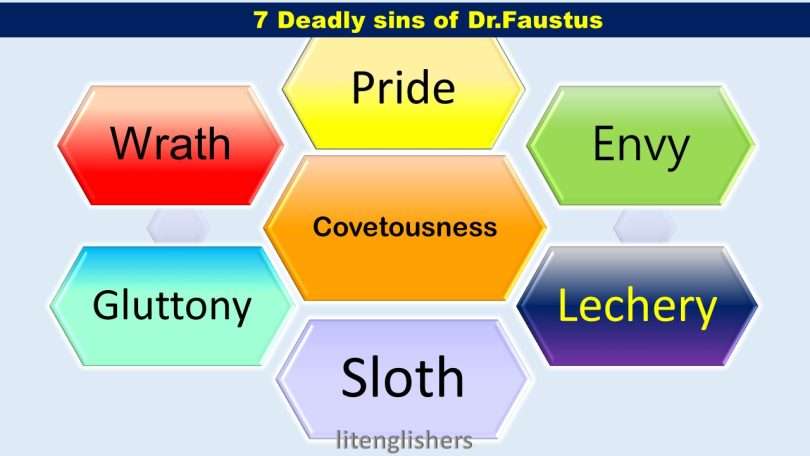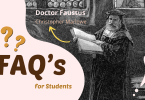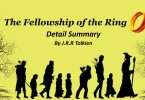What sins does Dr. Faustus commit?
The catholic church has two types of sins:
(i) Venial & (ii) Mortal
1:Venial
Such types of sins are on small scale and could be forgiven.
2:Mortal
mortal sins threaten to destroy the life of grace and condemn the sinner to eternal damnation unless they are absolved through confession.
Seven deadly sins
Lucifer envokes seven deadly sins in Dr. Faustus that make a common man a beast. A man should have control over himself, over his ambitions, over his wealth or power and if he is undertaken by these extravagant manly powers then he faces a tragic downfall as Dr. Faustus did. As we knew
“Power corrupts absolutely and absolute power corrupts absolutely.”
The same thing happened with Dr. Faustus. He is undertaken by his desire to acquire limitless knowledge and consequently did Seven deadly sins. Dr. Faustus was a man of strong or immense ambitions who after getting powers wanted to do something for humanity but Marlow veiled his true petty nature.
Once Faustus gains his long-desired powers, he doesn’t know what to do with them. As Marlow suggests that this uncertainty stems, in part from the fact that desire for knowledge leads inexorably towards God whom Faustus has renounced but more generally after getting powers he becomes a corrupt person. Once he does everything, he no longer desired to do anything.
Instead of doing something better for humanity or himself, he gets involved in vulgar activities. When he traipses Europe, he is used to playing tricks on Yokels and performing conjuring acts to impress various heads of state. He uses his incredible gifts just for trifling entertainment. The fields of possibility became narrow gradually as he visits ever more minor nobles and performs ever more unimportant magic tricks just to tease people.
“All unrighteousness is sin”
Dr.Fastus is a scholar who questions all knowledge and finds it lacking because none of his learning will allow him to transcend his mortal condition so he rejects God after committing soo many sins instead of repenting he made a contract with the devil and committed countless sins by disobeying God and the rules of nature by pursuing the arts of black magic.
This is one more evangelism of western Christianity trying to urge that knowledge is dangerous and imprisoning instead of rewarding and liberating. It also suggests a protestant view that
“One who believes in everything ends up believing in nothing.”
In the final scene, the vision that he sees is of hell looming up to swallow him. As we know Marlow uses much of his finest poetry to describe Faustus’s final hours, during which Faustus desired repentance but it’s too late for that. Faustus restored to his earlier grandeur in his closing speech, with its hurried rush from idea to idea and its despairing, Renaissance famous last line…
” I’ll burn my books!”
A great man undone because of his power ambitions has butted up against the law of God.
Dr. Faustus did nothing to protect Germany and nothing to help the poor or ill persons which he dreamed to do after getting unlimited powers. Instead, he commits many lethal and fraudulent sins:
Marlow takes the abstract concepts of sins and parades them before the audience. They are presented by Lucifer in the same way a medieval morality play would personify broad religious and philosophical concepts. They would have been costumed for comedy.
Seven deadly sins are…
- Pride
- Covetousness
- Wrath
- Envy
- Gluttony
- Sloth
- Lechery
 1:Pride
1:Pride
A feeling of honor and self-respect
Pride among the Seven deadly sins is the mother of all sins. Too much emotional response and attitude to do something by believing in our abilities distract us to concede the benevolence of God. Dr. Faustus did the same when he feels he is superior to others, so as a result, he became the victim of tragedy due to his wrong decisions or due to pride in his abilities.
He casts aside the doctrine attainable to him, by just scoring them for being too effortless or over simple for him. He was wherefore dissatisfied with being mortal because he wanted to be coequal in the place of God so he break the commandments of nature and God. He believes God will not give him the answer to those questions that he had in his mind and never allow him what he wants to do while he is on earth, so the better option to acquire or to fulfill those felonious desires he turns to Lucifer.
 2:Covetousness
2:Covetousness
Eagerness or excessive desire, or greediness, especially for wealth or possessions.
The desire for only material wealth or gain, brushing aside the realm of the spiritual. Faustus requests that Mephistopheles brings him a boodle, possessions, and sensual delights every day. According to him, temporary satisfaction has no comparison to what is promised by God in heaven. He wanted to rule by himself and get all things that he wants to acquire rather than get those things that are God-gifted or mortal.
In Seven deadly sins of Dr. Faustus Covetousness peeks out when he wants to get more and more and it is a sign of this sin. The covetousness provokes in Faustus when he evokes the devils for black magic and the want of a wife. Usually, this sin is manifested through sex, power, or image which demises self-control and the urge to suffocate one’s soul. We can say that it’s a kind of self-destructive drive for pleasure over which Faustus has no control.
 3:Wrath
3:Wrath
Extreme anger, strong vengeful hatred, resentment, and desire for others’ traits, abilities, and status.
When love is overwhelmed by anger. When a man is in power he used to oppress others by using his power or anger so when Dr. Faustus was empowered he began to consider himself superior to everyone and showed great anger over small things. Faustus demonstrates his impatience nature with the way he treats the people around him, his servants, human and demonic powers as well as other characters in the play.
Faustus becomes so furious at Benvolio’s parody of him that he indulges in a frivolous act of spite by enchanting a pair of antlers to appear on the man’s head. When he cannot bear the truth the old man offers him that if you repent then God forgive him then he suddenly becomes angry and asks Mephistopheles to call demons to torture the old soul to his death.
Dr. Faustus’ wrath peers out when he is not able to do anything in his life as he was not as intelligent and has powers as God or other people who are in authority. So a person like Faustus in a rage harm himself when he has no one else to fight. Those guilty of wrath were destined to be dismembered alive.
 4:Envy
4:Envy
Feel jealousy from others and desire for the qualities of another.
The desire of having the quality and possession that another person has, like status, abilities, and traits. As we know from the very beginning Faustus’ life isn’t that luxurious and deluxe so he has a grudge against those who have all the comforts and those who are in authority having all the mortal and immortal powers.
Faustus envies the emperor, the pope, Lucifer even God for having power and status beyond him. By getting those profusion and bizarre powers he decided to pick out the erroneous path by calling Mephistopheles and making a deal with him that he can get more power in the hope to surpass other exceeding powers.
In Dr . Faustus envy peep out when he saw the powers of God. Like Lucifer, he also disobey God to become more powerful and equal to God by disobeying or breaking the laws of nature made by God. He wanted to command the demons to control the world to his accord. He made a covenant with Lucifer to rule the world and to be equal to God so that he could rule both worlds like a God.
Envy also reflects when Robin and Rafe have once stolen one of Faustus’ books and plan to use it to seduce a woman. They must have been jealous of Faustus’ power, status, and magical aptitude.
 5:Gluttony
5:Gluttony
Excess in eating, drinking, habitual greed, and accepting the natural limits of pleasure preserves the natural balance.
According to the catholic church is considered the fifth of the seven cardinal sins. It’s the overindulgence and overconsumption of food, drink, or wealth items more than that which one requires gluttony isn’t about only food it also means entertainment and other legitimate goods, and even the company of others.
Dr. Faustus oblige to be a fat head that has become swollen in self-conceit due to his attempt to understand more than it is within the power of humans to know. In Dr. Faustus Gluttony appears when he wants much more power and position than others and the use of dark arts.
He wanted to acquire earthly knowledge by disturbing the natural balance of God’s laws and expectations because in his view God is no longer the balance or the medium in his life, the devil has become the greater power to Faustus even in some monologues Faustus starts using the devil’s name in place of where one would use God’s name. As stated according to Marlow
“Till swollen with cunning, of self-conceit
His waxen wings did mount above his reach”
At the end of his twenty-fourth year, when he is close to death, Faustus is guzzling and gloating with his students’ during a feast with ‘food and wine enough for an army, and his friends also did the same.
 6:Sloth
6:Sloth
Laziness, Aversion to work, Slow moving
Seven deadly sins by Dr. Faustus Sloth Works to wrap up the spiritual senses we begin to slow to respond to God and then indulged in the dormancy of complacency to the demonic ways. Dr. Faustus became like a lazy cattle after getting powers because he didn’t know what to do so he decided to do nothing not for himself not for the others even though so many chances were given to him to repent and go back to God he never repents.
He is numb to his subconsciousness by no longer abiding by what he does. His own body is fighting the deadly deed he was attempting to do. He uses his incredible gifts for what is essentially mere entertainment like antlers, and cherries, recalling past heroes and heroines. or converts his enemies into monkeys, performs pranks on them, and conjures them in different ways.
The evasion of physical or spiritual work, the shiftless, lazy person, like Faustus, is unwilling to do what God wants because of the effort it takes to do it. He ceases all the paths of hope for his salvation from God, for help in attaining it, or for the forgiveness of his sins.
He convokes Mephistopheles and signs the contract with Lucifer so he can get knowledge, dominion, possession, and experiences without any effort or elbow grease. Dr. Faustus Sloth shows up when he got all kinds of knowledge and he feels laziness from over knowledge.
 7:Lechery
7:Lechery
Sexual desire and excessive craving for the pleasures of the body.
Lechery or lust refers to excessive indulgence in sexual activities and such kinds of acts are considered to be purely for procreation so we can say that any sexual act that is for merely enjoyment rather than to produce children is sinful. This is a devilish act as in Elizabethan times it was thought that the devil targeted men through women like Eve and Adam. When he desired to meet Helen (the most beautiful woman) he instructs Mephistopheles instead to call out Helen of Troy for his lover She is simply a likeness conjured by the demon but Faustus tells her rivals for your love can burn down Wittenberg in their longing to have you home. so now the question is where’s his promise to protect Germany?
Dr. Faustus wants to gain glory by having expectations of others to get him his glory. For this purpose, he uses Mephistopheles to gain glory so we can say it’s the perfect showcase of the lechery too.
In a nutshell, we can say that...
Faustus has encircled many of these sins into his life so these seven deadly sins are the reflection of Faustus’ personality. He is a self-centered person who only thinks of himself and all his decisions taken by himself whether they gave him profit or indulge him in sinful activities. He crossed all the boundaries created by God and nature just to fulfill his desire to get knowledge, power, and wealth. He is imprisoned by his desires and put his ego above all.
The seven deadly sins that Mephistopheles’s Devils friend conjures to amuse Faustus are an allegory in the purest sense of the term. as we can say that allegory is an abstract concept that shows up in both forms concrete and material. In the medieval tradition of allegory, characters portray their relationship with the sins and also tell us which side they choose, the devil’s side or God’s side.
Marlow’s emblazon of sins is an ironic slot because they are elements of our downfall. These seven deadly sins urged a man to think about himself and what kind of person he is these are the reflection of our inner self. Symbolically it represents or gave the reflection of the Christian life as before Faustus dies he seems to think he sees the blood of Christ beam across the sky so to Christians the symbol of the blood means life and Eucharist beliefs.
Dr. Faustus was curious to know about those things that were by God which were far beyond the reach of man so his this curiosity to know the unknown take him toward his tragic end. You know.
“Curiosity killed the cat”
So overall scholars or not but we are all like Faustus in our traits, possessions, and actions because we all have a weakness, something we’re tempted to act unethically just to process.





